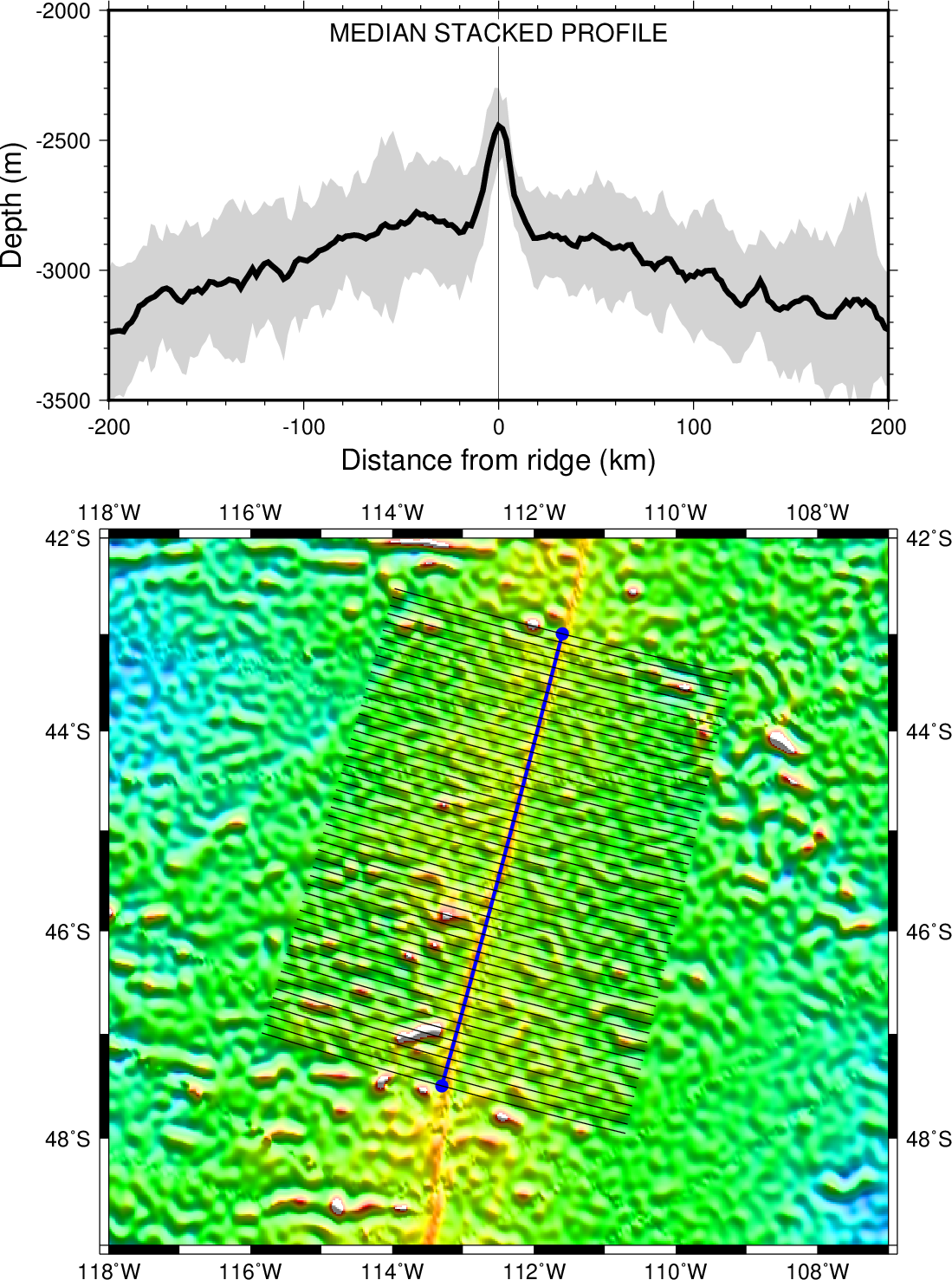(33) Stacking automatically generated cross-profiles¶
The script produces the plot in Figure. Here we demonstrate how grdtrack can be used to automatically create a suite of crossing profiles of uniform spacing and length and then sample one or more grids along these profiles; we also use the median stacking option to create a stacked profile, showed above the map, with the gray area representing the variations about the stacked median profile.
#!/bin/bash
# GMT EXAMPLE 33
# $Id$
#
# Purpose: Illustrate grdtrack's new cross-track and stacking options
# GMT modules: makecpt, gmtconvert, grdimage, grdtrack, pstext, psxy
# Unix progs: cat, rm
#
ps=example_33.ps
# Extract a subset of ETOPO1m for the East Pacific Rise
# gmt grdcut etopo1m_grd.nc -R118W/107W/49S/42S -Gspac.nc
gmt makecpt -Crainbow -T-5000/-2000 > z.cpt
gmt grdimage spac.nc -I+a15+ne0.75 -Cz.cpt -JM6i -P -Baf -K -Xc --FORMAT_GEO_MAP=dddF > $ps
# Select two points along the ridge
cat << EOF > ridge.txt
-111.6 -43.0
-113.3 -47.5
EOF
# Plot ridge segment and end points
gmt psxy -Rspac.nc -J -O -K -W2p,blue ridge.txt >> $ps
gmt psxy -R -J -O -K -Sc0.1i -Gblue ridge.txt >> $ps
# Generate cross-profiles 400 km long, spaced 10 km, samped every 2km
# and stack these using the median, write stacked profile
gmt grdtrack ridge.txt -Gspac.nc -C400k/2k/10k+v -Sm+sstack.txt > table.txt
gmt psxy -R -J -O -K -W0.5p table.txt >> $ps
# Show upper/lower values encountered as an envelope
gmt convert stack.txt -o0,5 > env.txt
gmt convert stack.txt -o0,6 -I -T >> env.txt
gmt psxy -R-200/200/-3500/-2000 -Bxafg1000+l"Distance from ridge (km)" -Byaf+l"Depth (m)" -BWSne \
-JX6i/3i -O -K -Glightgray env.txt -Y6.5i >> $ps
gmt psxy -R -J -O -K -W3p stack.txt >> $ps
echo "0 -2000 MEDIAN STACKED PROFILE" | gmt pstext -R -J -O -K -Gwhite -F+jTC+f14p -Dj0.1i >> $ps
gmt psxy -R -J -O -T >> $ps
# cleanup
rm -f z.cpt ridge.txt table.txt env.txt stack.txt
